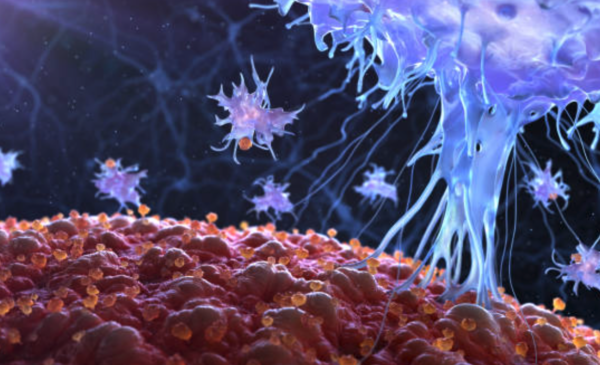by Kathleen Cole naturopath and author of Better Balance Anti-Inflammatory Food Guide
Your immune system operates in a complex communication network with your genes and their interaction with environmental influences. Epigenetics is basically how your lifestyle and environment can determine your gene expression or behavior.
A balance between your innate immunity or non-specific which provides barriers against all pathogens and adaptive which is specific to a particular pathogen is necessary for healthy immune function. A defect in either can lead to chronic infections, autoimmunity, or cancer.
Poor sleep, chronic stress, chronic inflammation, insulin resistance, lack of exercise, eating a diet of processed foods, exposure to toxic chemicals, poor detoxification function all contribute to your genes behaving badly and will in turn cause immune dysregulation.
The cell membrane has many important functions including maintaining the physical integrity of the cell, forming a protective barrier between the cell and the outside environment thus controlling entry of nutrients and elimination of toxins. An alkaline diet and alkaline minerals, potassium, calcium, magnesium, sodium, zinc and selenium support the detoxification process.
A key modulator of immune function is your microbiome, those amazing collection of critters, viruses, and bacteria that occupy 70% of your gut, living on you inside you and usually in relative harmony unless you do something to upset them. And then “Under the influence of certain environmental factors and host genetic susceptibility, aberrant interactions between the microbiome and the host’s immune system contribute to the development of various immune-mediated disorders”
A big upset is consuming a Western-style diet of processed, devitalized foods which profoundly affects the gut microbiome and has an adverse impact on host immunity.
An Anti-inflammatory style diet on the other hand will modulate immune responses, encourage a healthy balanced microbiome, is low glycemic to reduce the risk of insulin resistance and reduces your exposure to food toxins.
Antioxidants are a first line defense supporting your own cellular enzymes: The main cellular defense enzymes are:
1. Glutathione peroxidase- activated by sulforaphane found highest in broccoli sprouts, also broccoli, brussels sprouts, roobios tea, garlic, parsley, beets, turmeric.
2. SOD-Superoxide dismutase- rock melon, turmeric, chamomile, grapes, brussels sprouts, berries, black cumin seed
3. Catalase- green apple, rock melon, kiwifruit, apricot, avocado, banana, spinach, broccoli, crimini mushrooms, ginger, black cumin seed
Support your microbiome with prebiotics- garlic, leeks, oats, apples, and dandelion greens that feed the healthy bacteria and keep the cells lining your gut healthy. Probiotic foods such as yogurt, kefir, sauerkraut and other fermented vegetables as well as Polyphenols such as berries, green tea, spices and herbs that inhibit pathogenic bacterial growth.
Protect your cellular membrane with omega 3 essential fatty acids found in flaxseed, sardines, wild salmon, hempseed and omega 6 pumpkin seeds, nuts and seeds.
See Better Balance charts for a comprehensive list of foods and well-researched information to positively influence your epigenetic power
Zheng, D., Liwinski, T. & Elinav, E. Interaction between microbiota and immunity in health and disease.Cell Res30,492–506 (2020)
